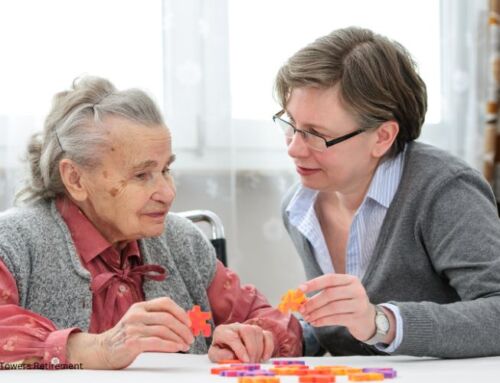“If you forgot where you put your watch, or can’t remember a new friend’s name, you may think you’ve lost your mind,” says Jeff Cleveland, president of Clear Choice Helath Care in Melbourne FL. “Turns out, you’re human. Everyone has a laundry list of ways their memory has failed them.”
And when it fails, people react in a variety of ways. Some seniors stop driving. A common problem with memory and driving comes with one wrong turn. It can offset orientation and memory.
Memory recall experts cite the psychological adage, “If you don’t encode, you can’t retrieve.” More specifically, memory involves encoding, recording, and retrieval. We take in (receive and encode) new information. Then, the brain records and stores the data. If successful, the brain can retrieve information in time of need.
Now and then forgetting where you left things, having difficulty with recalling names of friends, or blocking one memory with a similar one, such as calling a grandson by your son’s name, or walking into a room and forgetting why you entered are very normal occurrences.
Over the decades, these types of memory lags become more common. That’s because we’re not forming a daily stream of new connections. So, the mainstream adage, “Use it or lose it” may be apropos when it comes to reasons why our recall fades as we age.
For those who are experiencing memory loss, here are six tips from experts working in memory rehabilitation.
1. Create visual images that interact. For example, when you’re looking at a shopping list and wondering if you have all the correct ingredients for beef stew, imagine how the beef will look like when cooked with another item on your list.
2. Buddy-up. When trying to recall that you parked in lot 7A, enlist an accompanying friend to remind you where you parked every hour. Then when the time comes, you’re can more readily tap into the memory. Experts say this works better than the initial efforts of mentally repeating the parking lot spot.
3. Banish distractions. To free up some of your mental processes, close your eyes. A recent study suggests that participants answered 23 percent more questions correctly if they were able to visually shut off the environment.
4. Lifestyle habits. Studies show that participating in regular exercise, staying connected with friends and family, and eating a healthy diet can reduce a loss of memory.
5. Use visual aids. Relying on a calendar and jotting down notes that you can view for later recall is old school, but it still works.
6. Cheat. If you’ve got a smart phone or notepad, use it to store passwords and vital information where you can easily access information.
If you’re tired of using post-it notes, try smart phone apps. They can be super easy and use a variety of ways to help with recall. For example, a Google app called “Keep” can use your text or audio notes, check lists, pictures, and URLs to aid memory, like where you parked that car. You can even set an alarm to help remind you when to take your medication.
Can memory be rehabbed? “Many times, the answer is yes,” says Cleveland. He says that therapy can help short-term memory and improve patients’ confidence.
When strategies don’t help, seek medical advice – because there are conditions that could be contributing to loss in performing abilities. Thyroid or neurological disorders, unrelenting stress, severe depression, lack of sleep, and even a vitamin B-12 deficiency could be culprits to waning memory. The good news, these are all treatable by a doctor.
It’s not normal when memory changes interfere with day-to-day functioning. If you’re having trouble performing simple tasks (driving, managing medications) and forgetting things you’ve done many times, or get lost or disoriented even in familiar places, consult with your doctor.
Experts say that many patients can improve attention, memory, problem solving, reasoning, and higher-level thinking skills with appropriate therapy.
“Ask your physician if therapy can help you or your loved one stay as independent as possible,” says Cleveland.
















Navigating Assisted Living Costs in Sun City Center, FL - Assisted Living, Independent Living Retirement Community - Sun City Center FL says: